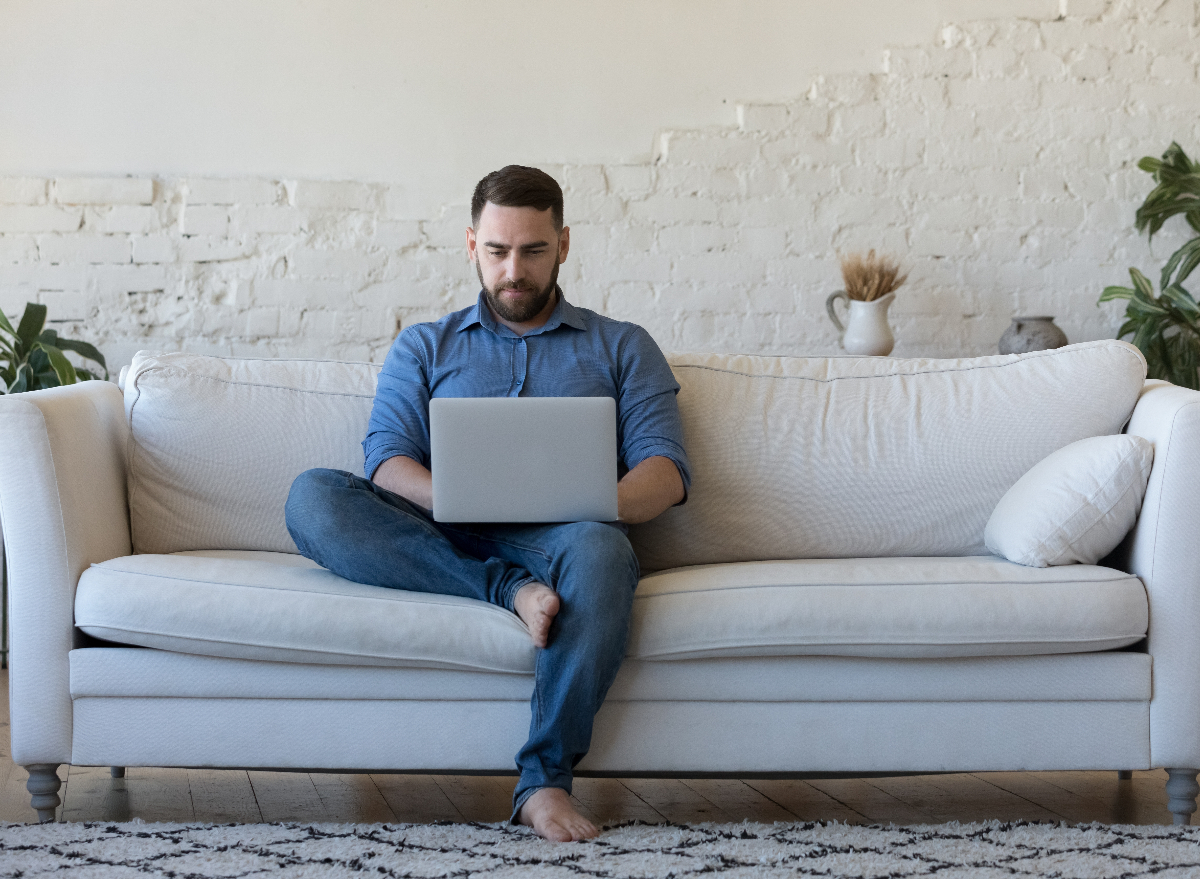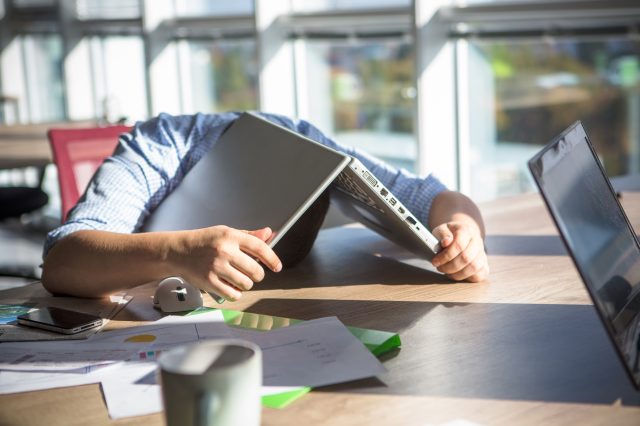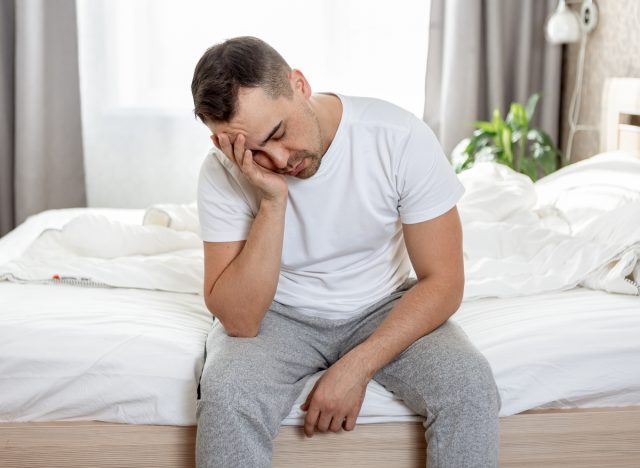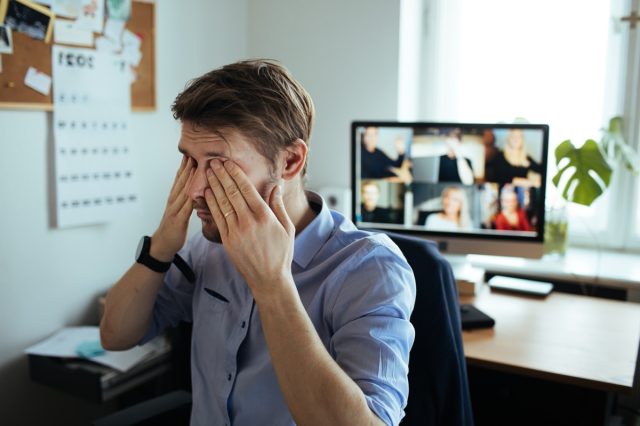This Is What Zoom Calls Are Doing to Your Body, Say Psychologists

When historians look back on life in the era of COVID-19, they’ll likely note that it was the time when face masks became the norm, hand washing became synonymous with the song “Happy Birthday,” and our collective mental health was tested on a never-before-seen scale.
It will also be remembered as the dawn of the era of the Zoom call.
Satirized by Saturday Night Live and loved or loathed by millions, the Zoom call—shorthand for all remote conference calls in which you’re talking to a grid of your colleagues, family members, or fellow classmates, Hollywood Squares-style—is officially ingrained in our everyday lives. Even when the workers of the world return to their gleaming offices, we’ll no doubt be Zooming each other, in some form or other, for eternity.
But what is the physical and psychological toll of using Zoom day-in and day-out? A new study published in the Journal of Applied Psychology analyzed several daily Zoomers (if that’s indeed a word), and the researchers came away with some interesting findings. Read on to learn more about what they are. And for one great way of boosting your mental health immediately, see why Watching This One Movie Makes Life Feel Less Hard, Says New Study.
“Zoom Fatigue” Is Real, Say Experts

For the study in the Journal of Applied Psychology, researchers from Old Dominion University recruited more than 50 working professionals from multiple fields of work and routinely sent them surveys to fill out regarding their feelings of videoconferencing. “Only about 7% of the participants didn’t report any signs of videoconference fatigue,” reports PsyPost. The feelings were increasingly negative on days that required the workers to undergo multiple calls. They were less severe in the morning, “but increased throughout the afternoon and early evening.” And for one amazing way to be a better worker, see here for The Secret Trick for Beating Procrastination, Says Top Psychologist.
Let’s Be Clear: “Zoom Fatigue” Means Real Fatigue

Partaking in videoconferencing doesn’t just make you tired of videoconferencing, say the study authors. They make your body tired—period.
“The main finding is that feeling tired after these videoconferences is a real thing,” Andrew A. Bennett, Ph.D., a professor at Old Dominion University, explained to PsyPost. “If you’ve experienced this, you aren’t alone and you aren’t imagining it. We now have some robust scientific data to back up this phenomenon: Over 92% of participants in this study recognized feeling fatigued and tired after a videoconference.”
Here’s Why They’re So Tiring

The researchers link the feelings of fatigue to the “extra effort needed to make personal connections during videoconferences,” writes PsyPost. One Zoomer explained to the site: “Video conferencing is quite impersonal. [E]veryone just wants to get in and get out, log in and log off. [T]here’s very little chatter before and after the meeting like there would be in real life.”
Also, like a student in a class trying to appear alert for their teacher, Zoom calls require people to focus on the camera in a way that suggests they’re “paying attention.” In short, it’s mentally quite exhausting.
Here’s How to Reduce Zoom Fatigue

Bennett offered three steps for curbing the fatigue associated with Zoom calls. The first? Schedule your meetings for the morning or the middle of the day—not in the evenings, when an overwhelming number of employees find them especially taxing. The second? “Use mute when you aren’t speaking,” says Bennett, as it reduces distractions for others. And finally, the last thing you can do is try to foster a stronger sense of a group.
“Feeling part of the group really matters,” he explained. “When these employees had a high sense of belongingness with others on the meeting, they were much less fatigued afterwards.” And if you’re finding that those Zoom calls are affecting your posture, don’t miss The #1 Way Sitting Too Much Is Damaging Your Body, Say Experts.








